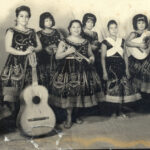Beck’s 1994 hit “Loser” remains an iconic anthem of slacker culture, but beneath its seemingly nonsensical surface lies a rich tapestry of wordplay and metaphor. Many listeners have been captivated and confused by the song’s enigmatic lyrics, particularly the first stanza. Let’s break down the potential meaning behind these famous “Beck Loser Song Lyrics”, exploring the layers of interpretation woven into this alternative rock classic.
Stanza 1: Car Racing and Metaphorical Breakdown
The opening stanza of “Loser” launches into a vivid, albeit cryptic, narrative that appears to be centered around car racing. However, Beck’s genius lies in using this seemingly straightforward scenario to explore deeper themes of self-deprecation and societal observation.
“Grease Monkey” in a “Zee”
The line “In the time of chimpanzees I was a monkey” immediately sets a slightly absurd and anachronistic tone. The original article suggests “time of chimpanzees” refers to the late 70s and early 80s, with the “zees” being Datsun 280Zs. This era represents a time of cool cars. Identifying himself as a “grease monkey” implies a mechanic or someone deeply involved with cars. This establishes the car racing motif right from the start.
Butane and Fuel Lines as “Veins”
“Butane in my veins and I’m out to cut the junkie” is a powerful and unusual image. Butane, a fuel gas, reinforces the car engine metaphor. The “veins” represent fuel lines, further solidifying the mechanical imagery. “Cutting the junkie” could be interpreted in a few ways: racing against a “junkie car” (an inferior vehicle) or perhaps metaphorically overcoming a feeling of being a “junkie” or loser himself.
“Plastic Headlights” and “Vegetables”
The phrase “With the plastic headlights” likely describes the “junkie car” he’s racing against. “Spray paint the vegetables” is a particularly bizarre line. The original interpretation of “vegetables” as “brain dead people watching” offers a cynical commentary on spectators or society in general, passively observing the race (or life). The “spray paint” could be literal mud from the race track, or a metaphorical splatter of chaos and absurdity onto the onlookers.
Breakdown and “Dog Food”
“Dog food stalls with the beefcake pantyhose” is where the race narrative takes a turn for the worse. “Dog food” is suggested to be a metaphor for his broken-down Mustang car, referencing the grim fate of old horses. “Stalls” links back to car engine trouble, but also subtly to “horse stalls,” reinforcing the car-as-horse metaphor. “Beefcake pantyhose” is a perplexing and humorous image, possibly referring to a burst hose in the car engine, described in an intentionally ridiculous way.
“Kill the Headlights” and “Neutral”
In the face of this breakdown, the lyrics shift to self-admonishment: “Kill the headlights and put it in neutral.” “Kill the headlights” is interpreted as “stop thinking about it,” a metaphorical way to deal with stress. “Putting it in neutral” suggests idling, accepting the current setback, and recognizing the lack of immediate control.
“Stock Car” and “Cruise Control”
The final lines of the stanza, “Stock car flamed-out, lucky the cruise control,” bring the racing metaphor to a close. “Stock car flamed-out” signifies the car’s failure in the race. “Cruise control” being in charge implies that the situation is now out of his hands, in the control of the “pit crew” or external forces. It reinforces the feeling of being a “loser,” someone whose fate is determined by others or by circumstance.
Stanza 2: Shifting Scenarios and Continued Wordplay
The second stanza takes a more fragmented and less narrative approach, delving into diverse and often provocative imagery. While the original article admits to a less complete understanding of this stanza, we can still explore some potential interpretations.
“Phony Gas Chamber” and “Pole”
“Phony gas chamber and one’s on the pole” introduces a darker, more cynical tone. “Phony gas chamber” is suggested to mean someone full of “bull.” “One’s on the pole” is interpreted as a woman working in a strip club or menstruating, with the subsequent line “shove the other in a bag” (interpreted as putting on a condom) adding to the sexual undertones. This shift moves away from the car racing and into potentially more social or personal commentary.
“My Time is a Piece of Wax”
“My time is a piece of wax falling on the termite” directly references the music industry. Wax was used to make LPs, so “my time is a piece of wax” could mean “my music is being created.” “Falling on a termite,” with “termite” being a reference to a baby boomer, suggests his music (Gen X) is impacting or being received by an older generation. The following line, “who’s choking on the splinter,” then depicts this older generation as being surprised or even “choking” on the unexpected sound of Gen X music.
“Get Crazy with the Cheese Wiz”
“Get crazy with the cheese wiz” is a famously nonsensical and playful line. Interpreted as “get crazy with the flourishes, wizard,” it encourages creative freedom and improvisation, perhaps within his music.
“Drive By Body Pierce”
Finally, “Drive by body pierce” is a jarringly modern and violent image, interpreted as a “drive-by shooting.” This starkly contrasts with the earlier car racing metaphor, perhaps highlighting a darker, more contemporary urban reality.
Conclusion: Embracing the “Loser” Identity
Beck’s “Loser” lyrics are a masterful example of postmodern wordplay and layered meaning. While seemingly chaotic and absurd on the surface, a closer look reveals a complex tapestry of metaphors, double entendres, and social commentary. The song’s enduring appeal lies in its embrace of the “loser” identity, not as a point of defeat, but as a space for creative expression and ironic self-awareness. By decoding these lyrics, we gain a deeper appreciation for Beck’s lyrical genius and the song’s lasting impact on alternative music.

